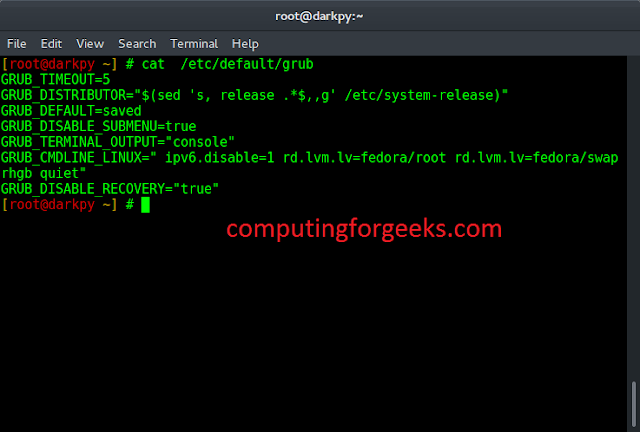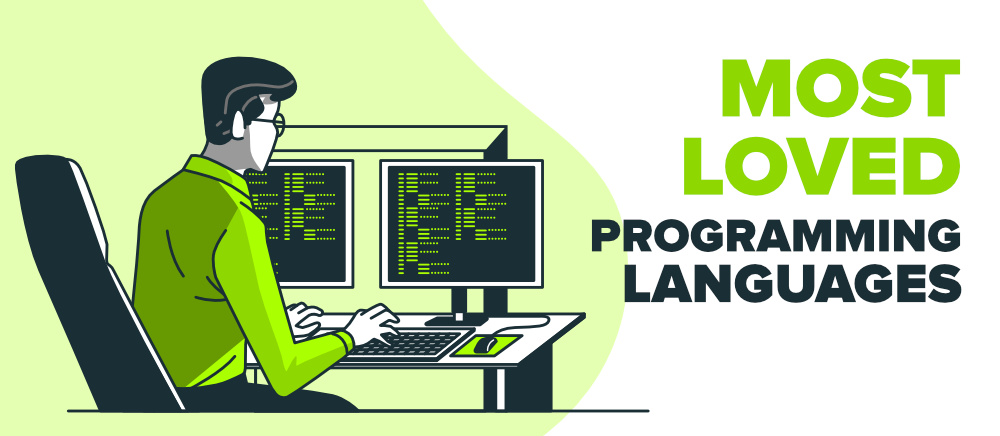If your dream is to become a good software developer in this 21′ st century and you started learning and coding with a programming language, but wait! do you know Which programming languages do developers love the most? do you know what is the latest coding trends? If you don’t then this article going to help you a lot to choose the perfect one. It’s good to be well-informed about what’s going on out there, and use that information as an advantage toward your learning.
Nowadays the software industries are evolving at a greater pace and there are not only lots of brilliant programming available but also new ones keep being created every week. So, among them which one do the professional developers love the most? and why these particular languages? There are some reasons for it. Let’s reveal this mystery:
1. Rust
According to the 2020’s StackOverflow’s Developers Survey those who get the opportunity to use Rust have fallen in love with it and 86.1% of 65,000 developers rated Rust as the most loved programming language since 2016. Rust is a multi-paradigm programming language especially focused on performance and safety, It is syntactically similar to C++ but provides memory safety without garbage collection. It is a language of highly concurrent and safe systems, creates and maintains boundaries to preserve large-system integrity.
- Performance: Performance of Rust is comparable to the efficient and super performer C++.
- Syntax: Rust syntax is similar to C and C++, with blocks of code delimited by curly brackets, and control flow keywords such as if, else, while, and for.
- Memory safety: It is specially designed to be memory safe, hence it does not permit null pointers, dangling pointers, or data races.
- Memory management: It provides deterministic management of resources, with very low overhead. Instead of automated garbage collection systems and Automatic Reference Counting, memory and other resources are managed through the resource acquisition is initialization (RAII) convention, with optional reference counting.
- Types and polymorphism: In Rust a generic function type-checked as soon as it is defined in contrast to duck typed C++ functions which cannot be checked until instantiated with concrete types. Rust supports interface inheritance but replaces the implementation inheritance with composition to prevent the diamond problem of multiple inheritances as in C++
- Major Projects using Rust: Many popular Softwares are built using Rust. for example, Firefox, Microsoft Azure, Discord, Redox, Firecracker, OpenDNS, TerminusDB are written using Rust.
2. TypeScript
TypeScript a strict syntactical superset of JavaScript language with optional static typing is specially designed to overcome the shortcomings of JavaScript for the development of large-scale applications. It is an open-source programming language by Microsoft with support for features such as classes, modules, and an arrow function syntax as defined in the ECMAScript 2015 standard. All the JavaScript codes are also valid TypeScript programs and it can be used to develop JavaScript applications for both client-side and server-side execution with Node.js or Deno. The TypeScript compiler itself written in TypeScript and compiled to JavaScript but You can also convert TypeScript to JavaScript using the Babel Compiler.
- Type signature: it has Type annotations with compile-time type checking,
- Type inference: it can automatically detect the data type of an expression,
- Type erasure: remove explicit type annotations from before run-time execution.
- Generic programming: algorithms are written with types to be specified later as needed.
- Modules and namespaces: supports encapsulation of classes, interfaces, and functions into containers
3. Python
Python is a very popular, high-level, interpreted general-purpose programming language. This language supports multiple programming paradigms including structured, object-oriented, and functional programming which help programmers to write clear, logical code for small and large-scale projects. Python is dynamically typed and garbage-collected language with a comprehensive standard library which is one of its greatest strengths provides tools suited to many tasks. Rather than having all the functionality built into its core, this language was designed to be highly extensible. This compact modularity has made this so popular.
- Indentation: Python uses whitespace indentation instead of curly brackets or keywords to delimit blocks,
- Typing: Despite being dynamically typed, it is strongly typed language, uses duck typing, and has typed objects but untyped variable names.
- Libraries: one of its greatest strengths is its huge standard library which makes this language “Jack of All Trade”. The Python Package Index (PyPI), the official repository contains over 200,000 packages for a wide range of functionality, including Automation, Data Science, Databases, Gui’s, Image processing, Machine learning, Networking, Web frameworks, Web scraping and many more.
- Development: Python’s development is conducted by Python Enhancement Proposal (PEP) process and some awesome PEPs are reviewed and commented on by the Python community and the steering council.
- Uses: Lots of tech giants use Python including Wikipedia, Google, Yahoo!, CERN, NASA, Facebook, Amazon, Instagram, Spotify. Python is vastly using in AI and ML projects with the help of libraries like TensorFlow, Keras, Pytorch, and Scikit-learn.
4. Kotlin
Kotlin is an open-source, cross-platform, statically typed, a modern general-purpose programming language with type inference, a programming language that makes developers happier for its brilliant features. According to Google Kotlin is the preferred language for Android app development and was included as an alternative to the standard Java compiler in Android Studio 3.0. This language is designed to be an industrial-strength object-oriented language which is better than Java, but it is fully interoperable with Java code, and mainly targets the JVM but also compiles to JavaScript or native code. Kotlin not only supports classes and methods of object-oriented programming but also supports procedural programming with functions.
- Simplicity: Kotlin is a very simple and concise programming language which drastically reduces the number of boilerplate code.
- Efficiency: Kotlin improves code quality and operations. and became very efficient and nearly perfect.
- Interoperable: Kotlin has massive interoperability with the existing libraries of JVM, Android, and the browser.
- Tool-friendly: Large numbers of tools has plug-in support for Kotlin. You can use any Java IDE or use the command line for Kotlin.
- Safe and reliable: It avoids entire classes of errors such as null pointer exceptions, automatically remove mistakes and simplify the code for debugging and operations.and reduces Crashes at Runtime.
- Uses: Gradle is introducing Kotlin as a language for writing build scripts. due to open-source large no of companies adopting Kotlin including Corda, Evernote, Coursera, Spring, Atlassian, etc.
5. GoLang
Go is a statically typed, open-source programming language designed at Google that makes programmers more productive and helps to build simple, reliable, and efficient software very easily. This language is often referred to as “Golang” because of its domain name, golang.org, and is syntactically similar to C, but with memory safety, garbage collection, structural typing, and CSP-style concurrency. Go is well known for its high-performance in networking and multiprocessing. This language has runtime efficiency like c++ but has greater readability and usabilities like Python or JavaScript.
- Concurrency: provides greater concurrency with the help of goroutine which makes it extremely easy to implement in a concurrent system. Goroutines are very cheap, lightweight threads of execution. and Spawning a goroutine is also very simple.
- Simplicity and Consistency: This language was designed with a very minimalistic approach and it is well known for its simplicity. Although it is a strongly and statically typed but it does not support generics. The standard library and the packages are consistent.
- Object-oriented: Go is an Object-oriented programming language and supports the useful features of oops. it uses structs as a replacement for classes and goes for composition over inheritance.
- Tools: Go provides many useful tools for building, testing, and analyzing code including go test for unit testing, go fmt for formatting, code, go get for retrieving and installing remote packages, go run for building and executing code, etc.
- Compiler: Its compiler is super fast and easily compile a large go program within a few seconds. Due to super simple syntax, the compilation is much quicker in go and the compiler can easily parse even without a symbol table.





